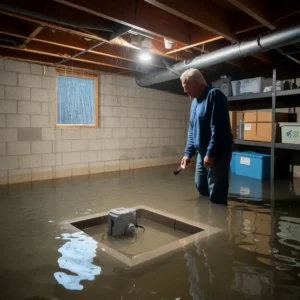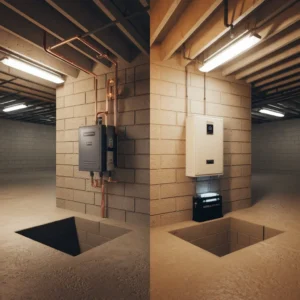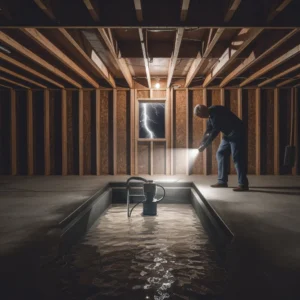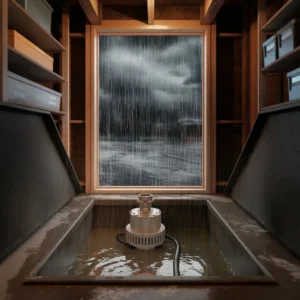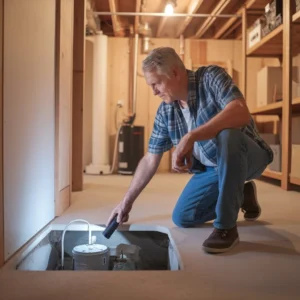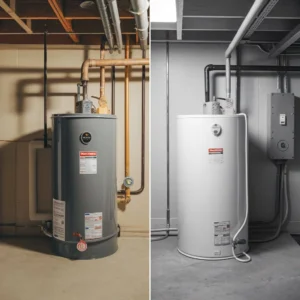A home’s main water line is the essential conduit that delivers reliable water flow to faucets, appliances, and bathroom fixtures. Choosing the best type of pipe for underground water line installations or aboveground connections can influence your home’s long-term durability and water quality. At DNA Plumbing and Heating, we value the importance of sturdy materials, professional installation, and local building code compliance to ensure your family’s comfort and safety for years to come. Whether you are planning a replacement or upgrade, our Professional Water Line Installation services guarantee precision, safety, and reliability.
But which types of water line pipes best suit your specific needs? From copper and PVC to modern polyethylene options, each pipe material has unique strengths. Understanding their properties—such as corrosion resistance, pressure ratings, and lifespan—helps you make informed decisions. In this guide, we’ll explore what type of pipe is used for water lines, discuss environmental factors, and highlight how DNA Plumbing and Heating ensures worry-free service for US homeowners with Reliable Water Line Repair solutions.
The Importance of Proper Pipe Selection
Selecting the right pipe for your main water lines can protect your home from issues like leaks, low pressure, or contamination. Pipes vary in lifespan, corrosion behavior, and compatibility with different water compositions. Relying on outdated or incompatible piping—like heavily corroded galvanized lines—could lead to frequent failures. At DNA Plumbing and Heating, we always prioritize materials that balance performance, safety, and code compliance.
If you’re wondering what type of pipe is used for underground water lines in modern systems, you’ll find options like PVC, HDPE, and even ductile iron. The goal is to select a material that can handle external pressures—such as shifting soil—without succumbing to cracks or pinhole leaks. By focusing on the right pipe from the start, you can avoid long-term headaches, protect your property’s value, and reduce the need for frequent Repair Broken Water Lines services.
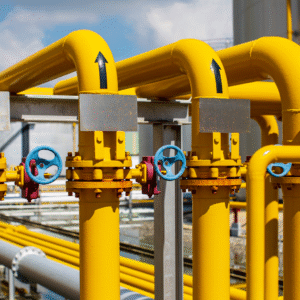
Copper Pipes for Water Mains
Among the best pipe materials for water mains, copper remains a classic choice. It offers robust pressure and corrosion resistance when installed correctly, often lasting decades under normal conditions. Copper pipes used for water mains are typically built to withstand high pressures thanks to their durable construction. Because of its proven track record, copper is often a go-to for many US building codes, aligning well with expected standards in water safety and longevity.
However, copper can be more expensive than some alternatives and may be vulnerable to certain highly acidic water conditions. In these scenarios, protective linings or water treatment may be required to prolong the pipe’s life. Nonetheless, when installed by skilled professionals—like those at DNA Plumbing and Heating—copper pipes provide reliable performance, excellent heat tolerance, and a long-term return on investment for homeowners.
PVC and CPVC: Classic Plastic Pipe Solutions
For homeowners seeking a more cost-effective, lightweight option, PVC (polyvinyl chloride) and CPVC (chlorinated polyvinyl chloride) often come to mind. They’re popular in the US for underground water main installation, thanks to their strong corrosion-resistant properties. Often white or off-white in color, PVC offers high tensile strength, while CPVC can handle warmer temperatures. Both options feature relatively easy installation methods, shortening labor time and potentially lowering project costs.
Still, environmental and UV considerations for plastic pipes matter—direct sunlight can degrade standard PVC over time. That’s why most municipalities recommend burying PVC or protecting it with insulation or shielding if it’s exposed. DNA Plumbing and Heating emphasizes checking local code requirements and verifying pipe ratings to ensure each installation meets pressure specifications and longevity requirements without compromising safety or system integrity.
HDPE Pipes: A Modern Contender
High-density polyethylene (HDPE) pipes have gained traction in recent years for main water line projects. Their strength, flexibility, and excellent chemical resistance make them suitable for trenchless water main installation, particularly in challenging soil conditions. HDPE pipes are joined via heat fusion, creating leak-proof, long-lasting seams. This seamless construction reduces the risk of root intrusion or infiltration, particularly useful when you’re deciding what type of pipe for water line projects underground.
Another advantage is the pipe’s smooth interior, which promotes water flow efficiency and discourages scale or buildup. Because HDPE material resists corrosion, it can remain functional for several decades. However, installation quality is crucial. DNA Plumbing and Heating ensures correct fusion techniques, consistent pipe diameter (ID and OD), and thorough testing to give homeowners confidence in their HDPE-based water lines.
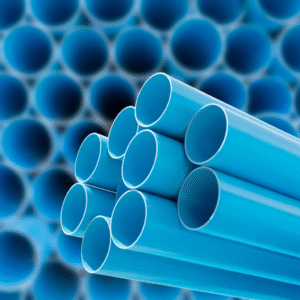
Ductile Iron and Cast Iron Pipes
When discussing types of water line pipes with high strength for heavy-duty applications, ductile iron stands out. Its robust nature and high-pressure tolerance often cater to municipal water systems and some residential developments. Compared to older cast iron, ductile iron contains nodular graphite, which improves strength and flexibility. This makes it less prone to cracking under stress, although it can be heavier and pricier than some plastic counterparts.
Cast iron was historically used but is now less common due to corrosion concerns and difficulty in modifying older lines. In ductile iron vs. cast iron pipes, ductile iron’s advanced metallurgy delivers better durability and easier installation. If your local code still permits these materials, DNA Plumbing and Heating can evaluate soil pH, external coatings, and your property’s needs to determine if ductile iron is a viable option.
Galvanized Pipes and Their Limitations
Galvanized steel pipes were once standard, but they tend to lose their corrosion resistance over time. They develop rust and scale buildup, restricting flow and potentially affecting water quality. While some older homes may still use galvanized systems, most modern upgrades favor superior corrosion-resistant materials. If you’re stuck with galvanized lines, consider a replacement plan. DNA Plumbing and Heating can advise you on a safe, cost-effective solution aligned with current US standards.
Environmental Factors and UV Exposure
Before settling on what type of pipe is used for main water lines, factors in the local environment—soil acidity, frost depth, and potential UV exposure all matter. Many plastic pipe water mains, like PVC or HDPE, require proper burial or insulation in colder climates. Harsh sunlight can degrade pipes that are not rated for UV protection. By accounting for these conditions, you’ll ensure reliable service and prevent premature pipe failures.
Pipe Sizing, Pressure Ratings, and Longevity
Pipe measurement—inside diameter (ID) and outside diameter (OD)—directly impacts flow rate and pressure control. Undersized pipes can choke water demand during peak usage, while oversized pipes might invite stagnant flow or water hammer issues. Each pipe material also has maximum pressure ratings that must align with the local municipal supply. DNA Plumbing and Heating helps homeowners identify the right dimensions for smooth, dependable water service.
Pipe durability and longevity hinge on both material quality and installation finesse. Copper, PVC, HDPE, and ductile iron can each serve you well—provided the chosen diameter, site preparation, and joint methods are correct. Regular inspections and timely maintenance minimize leaks or blockages. At DNA Plumbing and Heating, we offer thorough assessments to gauge your current setup and advise on any replacements or upgrades needed to keep water flow at its best.
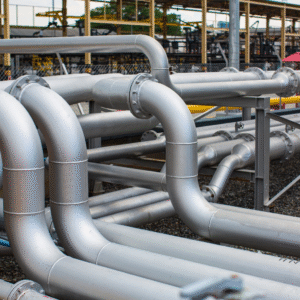
Installation Methods: Traditional vs. Trenchless
When upgrading a main line, consider whether traditional excavation suits your situation or if a trenchless water main installation offers better efficiency. Trenchless techniques such as pipe bursting and directional boring reduce disruption to driveways and landscaping. Both approaches work well with HDPE or PVC. By consulting experienced professionals, you’ll learn which installation method best fits your property’s terrain, budget, and project timeline—while ensuring code compliance and enduring performance.
Conclusion
Selecting the best type of pipe for underground water line projects or aboveground service is a foundational step in maintaining safe, reliable plumbing. By balancing corrosion resistance, pressure ratings, and longevity, you can avoid unnecessary repairs and preserve your home’s value. DNA Plumbing and Heating specializes in guiding homeowners toward practical, US code-compliant solutions—whether you’re replacing a corroded galvanized line or considering modern HDPE. Contact us today to discuss your main water line needs and learn more about how our expert team can ensure a smart, lasting installation.

